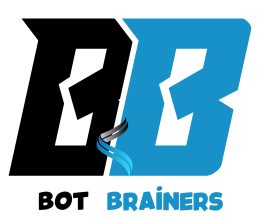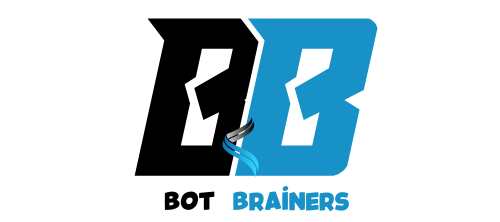In the fast-paced world of insurance, agents are constantly managing client relationships, leads, and renewals, making it critical to streamline operations. This is where CRM Solutions for Insurance Agents come in. Customer Relationship Management (CRM) systems are vital for managing customer data, improving client interactions, and boosting sales. In this article, we’ll explore the best CRM for insurance agents, delve into its features and benefits, and present some top CRM software options for insurance agents, including those designed for life and health insurance.
Why Do Insurance Agents Need CRM Software?
Managing an insurance agency can quickly become overwhelming due to the vast amount of client information, policies, quotes, and renewals agents need to track. That’s where insurance CRM software comes into play.
A CRM for insurance agents helps manage all client and policy-related information in one place. This ensures agents can easily track interactions, follow up with prospects, and stay organized. Whether you’re dealing with life insurance, health insurance, or general coverage, an insurance CRM system offers a centralized hub for client communications, automation, and reporting.
Key Features of the Best CRM for Insurance Agents
When choosing a CRM for your insurance business, the best options offer specialized features that cater to the insurance industry. Here are the key features to look for in CRM Solutions for Insurance Agents:
1. Client Data Management
The ability to store and manage client data is a fundamental feature of CRM systems. The best insurance CRM systems provide detailed client profiles that include personal information, policy details, communication history, and more. This information helps agents offer personalized services and improve the client experience.
2. Lead Management and Automation
Lead generation and follow-up are crucial aspects of an insurance agent’s work. A CRM specifically designed for insurance agents should have lead management features like lead capture, segmentation, and scoring. Additionally, automation tools allow agents to automatically follow up on leads, nurture them, and send reminders for calls or meetings.
3. Sales Pipeline Tracking
Tracking the progress of leads and opportunities through the sales funnel is essential for insurance agents. CRM software for insurance agents provides tools to manage the entire sales process. Whether you’re closing a life insurance policy or selling health insurance, the CRM helps agents understand where each lead stands in the sales pipeline and take action accordingly.
4. Task Management and Reminders
Keeping track of tasks, appointments, and follow-ups is a challenge for busy agents. A good insurance customer management software will offer task management tools to help agents schedule calls, set reminders for renewals, and prioritize their workload, ensuring no client is overlooked.
5. Communication Tools
CRM systems for insurance agents need to integrate with various communication channels like email, phone, and chat. This ensures that agents can engage with clients directly from the CRM. Additionally, automated email campaigns can be used to keep clients informed about new policies or discounts.
6. Reports and Analytics
Analytics and reporting tools are essential to evaluate performance and track key metrics. Insurance CRM systems provide insights into sales performance, lead conversion rates, and client retention. These reports help agents fine-tune their strategies and improve their approach to both existing and potential clients.
7. Integration with Other Tools
An insurance CRM should integrate seamlessly with other tools, such as quoting systems, billing software, and claims management platforms. This ensures a smooth workflow and avoids duplicating data entry. The best CRM systems for insurance agents offer a range of integration options to enhance the user experience.
Benefits of Using a CRM for Insurance Agents
Implementing insurance CRM software in your business can bring numerous benefits, including:
1. Improved Efficiency
By centralizing client information and automating repetitive tasks, CRM for insurance agents saves time and reduces manual errors. Agents can focus on what truly matters: building relationships with clients and closing deals.
2. Enhanced Client Relationships
With detailed client profiles, agents can offer personalized services tailored to each client’s needs. Whether you’re working with a life insurance client or a health insurance policyholder, CRM software for insurance agents helps maintain strong relationships by tracking client preferences, anniversaries, renewals, and more.
3. Increased Sales and Conversions
The automation tools available in CRM for insurance agents help convert leads more effectively. By automating lead nurturing and follow-up tasks, agents can ensure that no potential sale slips through the cracks, leading to increased conversion rates and sales.
4. Better Collaboration
Larger insurance agencies often have multiple team members involved in a client’s journey. A CRM allows seamless collaboration between agents, managers, and support staff, ensuring everyone has access to the same client data and is working toward the same goal.
5. Higher Client Retention
By keeping track of policy renewals, claims, and personalized communication, insurance CRM systems can significantly improve client retention. Agents can proactively reach out to clients before their policies expire, offer additional coverage, or send reminders, making it easier to maintain a long-lasting client relationship.
Types of CRM Software for Insurance Agents
While CRM solutions for insurance agents generally offer similar core functionalities, different types of CRM platforms cater to specific needs within the insurance industry. These include CRMs designed for life insurance, health insurance, and more. Let’s explore some specialized options.
1. CRM for Life Insurance Agents
Life insurance agents have unique needs, such as managing long-term client relationships, renewals, and underwriting processes. CRM software for life insurance agents helps track these processes, ensuring that agents can manage their leads and policies with ease. Features like policy tracking, beneficiary management, and communication tracking are essential for life insurance sales.
2. Health Insurance CRM
Health insurance agents face challenges that differ from those of general insurance or life insurance agents. A health insurance CRM must handle complex health plan options, track clients’ medical histories, and ensure timely communication about policy changes or renewals. Health insurance-specific CRMs streamline the quoting process and make it easier for agents to recommend the best plans to their clients.
Top Picks for the Best CRM for Insurance Agents
Now that we’ve discussed key features and benefits, let’s look at some of the top CRM software options for insurance agents. These systems cater to the unique demands of insurance agents while offering robust tools to streamline daily tasks.
1. Salesforce
Salesforce is one of the most widely recognized CRM platforms in the world. For insurance agents, Salesforce offers a comprehensive solution that includes lead management, sales pipeline tracking, automation, and reporting. It’s a highly customizable option, which is ideal for larger agencies with more complex needs.
Pros:
- Highly customizable
- Advanced reporting and analytics
- Robust automation features
Cons:
- Expensive, especially for small teams
- Steep learning curve
2. HubSpot CRM
HubSpot is a popular choice for small to mid-sized insurance agencies. It offers an easy-to-use interface with a strong focus on marketing automation. HubSpot helps insurance agents capture leads, automate follow-up, and track client interactions.
Pros:
- Free tier available
- User-friendly
- Strong automation and marketing tools
Cons:
- Limited customization on the free plan
3. Zoho CRM
Zoho CRM is a great option for insurance agents seeking a cost-effective, feature-rich platform. It offers tools for lead management, sales pipeline tracking, and task automation, making it ideal for insurance agencies looking to streamline their operations without breaking the bank.
Pros:
- Affordable pricing
- Customizable to meet insurance-specific needs
- Strong mobile app for on-the-go access
Cons:
- Some features require higher-tier pricing
- The steep learning curve for beginners
4. Insly
Designed specifically for the insurance industry, Insly offers insurance agents a comprehensive CRM solution that includes policy management, client communication tracking, and renewals. It’s perfect for agencies focusing on specific types of insurance, such as life or health insurance.
Pros:
- Industry-specific features
- Easy-to-use interface
- Scalable for growing agencies
Cons:
- Limited integration options
- Pricing can be a concern for smaller agencies
5. Pipedrive
Pipedrive is a simple yet effective CRM that helps insurance agents manage their leads and sales pipeline. It’s easy to set up and offers robust features for tracking client interactions and automating follow-ups.
Pros:
- Easy-to-use interface
- Affordable pricing
- Strong pipeline management features
Cons:
- Lacks some advanced reporting tools
To read more about softwares visit our blog section “software“.
Conclusion
Choosing the best CRM Solutions for Insurance Agents depends on your agency’s specific needs, whether you focus on life insurance, health insurance, or general coverage. The right CRM system can significantly improve your client management, boost sales, and enhance team collaboration. Look for systems that offer the necessary features like lead management, automation, and reporting tools, as well as integration with other platforms used in the insurance industry. With the right CRM software in place, insurance agents can increase efficiency, build stronger client relationships, and ultimately grow their business.


